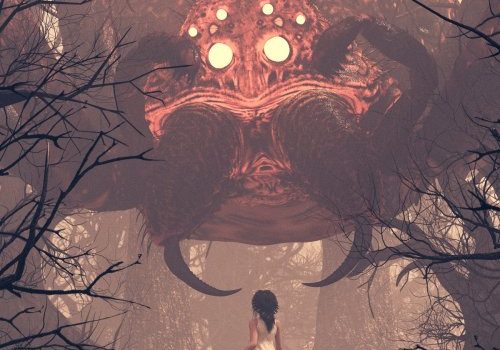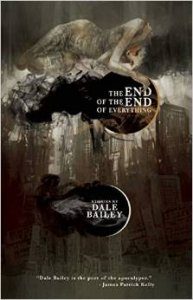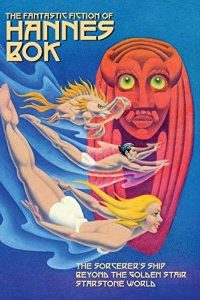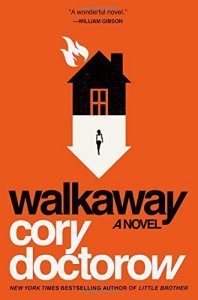Paula Guran Reviews Short Fiction: The Dark, Apex, Nightmare, and Deadlands
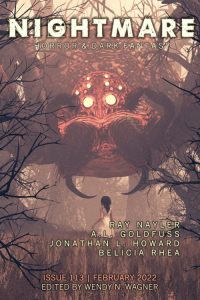 The Dark 1/22, 2/22
The Dark 1/22, 2/22
Apex #129
Nightmare 2/22
Deadlands 1/22, 2/22
The Dark #80’s four original stories include ‘‘Thermophile’’ by Jack Klausner and ‘‘Intrusions’’ by Margot McGovern. In the former, Lisa’s roomie Stu starts taking really long hot showers. And baths. And acting strange. His only excuse is that he likes the warmth. This is an idea that doesn’t quite turn into a story. In the latter, the narrator takes to sleeping in other people’s empty houses to avoid her ex. It makes her feel safe – until she finds herself in a haunted house. I never felt the protagonist was actually in danger from either her stalker or the supernatural. A third story, ‘‘Funny Faces’’ by Seán Padraic Birnie, tells of a little girl separated from her father in a supermarket. What she experiences and/or imagines accurately reflects what a child would feel. The true element of horror, however, is that the episode stays with her as an adult and, considering how children’s psyches often protect their future adult selves, would those memories be so indelible?
Standout for the issue comes from Octavia Cade, a singular writer. Her brand of weird is unique. ‘‘The Lending Library of Final Lines’’ is set in a harbor town of dark magic and giant killer crabs, a world Cade’s used for several previous stories. Each time I encounter it, I find it more dangerously entrancing. Here, the protagonist Clytie is practical and unimaginative. She values survival and her job that keeps her fed and safe from those crabs. The girl works in a street stall that sells pages salvaged from books and doesn’t mind clouting anyone who might be a thief. Her illiteracy and lack of curiosity help protect her from the sometimes fatal escape the pages offer others. ‘‘Incuriosity, ignorance, the ability to look and turn away, to keep turned away when others might pry and ask. They were survival strategies, and they served. Not well, perhaps, but well enough.’’ An unusual heroine, but one with more dimension than you might first expect.
The Dark #81’s four stories are all readable, but none of them measure up to Cade’s. Young Winnie’s family is broken in ‘‘Suffer, the Children’’ by Kristi DeMeester. An attempt to ‘‘fix’’ it turns into a tale of supernatural – well, vengeance, maybe. The Tooth Fairy becomes a lifelong, very human menace in ‘‘Tooth, Teeth, Tongue’’ by Ai Jiang. ‘‘The Pennyfeathers Ride Again’’ by L Chan tells of a pair of ghost-hunting witch brothers. It’s a bit too big for the confines of its length and reads more as a synopsis for what could be a much grander work of fiction. In Tony Richards’s ‘‘The Snickersnacks’’, a family has moved to a new house. The youngest child is plagued with what seem to be nightmares. Meanwhile, the parents are growing apart. The peril here is an unusual one and chilling when revealed.
Lavie Tidhar’s ‘‘It Happened in ‘Loontown’’ leads off Apex #129. It’s a hilarious take on classic hardboiled noir, in which balloons are the characters. Busted lives and lost balloons in the big city. In ‘‘Sheri, At This Very Moment’’ by Bianca Sayan, a ‘‘confluence of technology, poor predictive models, a surprisingly permissive insurance policy, bullish pharma forecasts, and family connections’’ allow Sheri to continue living in stasis, waiting for a cure that has never come. Her family ‘‘wakes’’ her up periodically to share in their lives. Each awakening is a sliver of Sheri’s life expended. Her husband feels it is presumptive to ‘‘use up’’ her limited life. But how better to spend whatever time you have than with those you love? Another thought-provoker.
In Rich Larson’s short, well-crafted ‘‘What Una Loves’’ a young mother is ‘‘plucked from [her] dull gray life’’ of poverty and into a life in which she can provide for her beloved baby daughter. The cost is repeated surgeries – voted on by viewers of a reality show – that physically alter her. But the cost eventually becomes appallingly greater than she could ever have imagined.
It’s sometimes difficult to judge a translated story. Although there are many interesting ideas about art and memory in ‘‘City Lights’’ by Yilun Fan (translated by S. Qiouyi Lu), the story of a mostly cyborg dance troupe in a fictionalized future Guzhou (more usually spelled Guizhou) province, it is bogged down by what I found to be a mundane writing style. Cristina Jurado’s ‘‘Lamia’’ (translated by Monica Louzon) is about a monster, Lamia, created by another monster. The newer monster may well be more monstrous than its creator. I suspect the author wants me to sympathize with Lamia, but it is difficult to do so. It’s a story with some power to it, but it didn’t entirely work for me.
The narrator’s life in M. Shaw’s ‘‘The Cure for Loneliness’’ is getting weird. She’s confined to an apartment and ‘‘trapped in a country driven mad by pestilence, with plenty of other things to worry about. How to stay fed, what I was going to do if (when) I lost my job, an internet full of conspiracy theorists who thought the vaccine was going to make you autistic and/or eat babies.’’ Her cat dies and mutant plants begin taking over her apartment and life. This is a story about a different kind of monster. One that affects us all.
Nightmare 113 offers three good stories. The reader may think ‘‘The Summer Castle’’ by Ray Nayler is about a number of things before realizing it really is about exactly what the narrator tells us at its beginning: ‘‘I have spent my life trying to understand what the thing called memory is. I know some of what it is not. It is not the opposite of forgetting. And it is not a record of what happened.’’ The consideration of memory altering reality is, ultimately, a terrifying thought, yet it is also a comforting one.
In easily believable flash story ‘‘Fenworth City Municipal Watersheds Field Survey’’ from A.L. Goldfuss, the end of the world is viewed through cameras originally installed to keep track of erosion levels, and Jonathan L. Howard’s ‘‘In the Walls and Beneath the Fridge’’ relates how a little girl obtains a ‘‘friend’’ who helps deal with her abusive mother.
Each issue of Deadlands offers two originals. From Deadlands 9, Michael Baez Arroyo’s ‘‘Bayú’’ is a sweet story about what a Puerto Rican afterlife might be like. Alix E. Harrow’s oddly appealing ‘‘The Long Way Up’’ introduces Ocean, a widow whose ‘‘aggressive sadness’’ and ‘‘refusal to proceed along the stages of grief’’ as expected, travels all the way to Hell to reclaim her husband. But does he want to return to life?
‘‘My Cloak of Keys’’ by Fran Wilde in Deadlands 10 is a fascinating story of a ‘‘small god’’ who helps the dead by checking each soul and removing ‘‘the last of the world from their desperate grasp.’’ But they are challenged when two of the living threaten to keep them from their job. ‘‘Animal Sacrifice’’ by Mar Stratford is set in an alternate 1980s where Russian space travel is common. It considers the paradox of quantum superposition. Or maybe it’s about ghost dogs.
Recommended Stories:
‘‘The Lending Library of Final Lines’’, Octavia Cade (The Dark 1/22)
‘‘What Una Loves’’, Rich Larson (Apex #129)
‘‘The Summer Castle’’, Ray Nayler (Nightmare 2/22)
‘‘The Cure for Loneliness’’, M. Shaw (Apex #129)
Paula Guran has edited more than 40 science fiction, fantasy, and horror anthologies and more than 50 novels and collections featuring the same. She’s reviewed and written articles for dozens of publications. She lives in Akron OH, near enough to her grandchildren to frequently be indulgent.
This review and more like it in the April 2022 issue of Locus.
 While you are here, please take a moment to support Locus with a one-time or recurring donation. We rely on reader donations to keep the magazine and site going, and would like to keep the site paywall free, but WE NEED YOUR FINANCIAL SUPPORT to continue quality coverage of the science fiction and fantasy field.
While you are here, please take a moment to support Locus with a one-time or recurring donation. We rely on reader donations to keep the magazine and site going, and would like to keep the site paywall free, but WE NEED YOUR FINANCIAL SUPPORT to continue quality coverage of the science fiction and fantasy field.
©Locus Magazine. Copyrighted material may not be republished without permission of LSFF.


